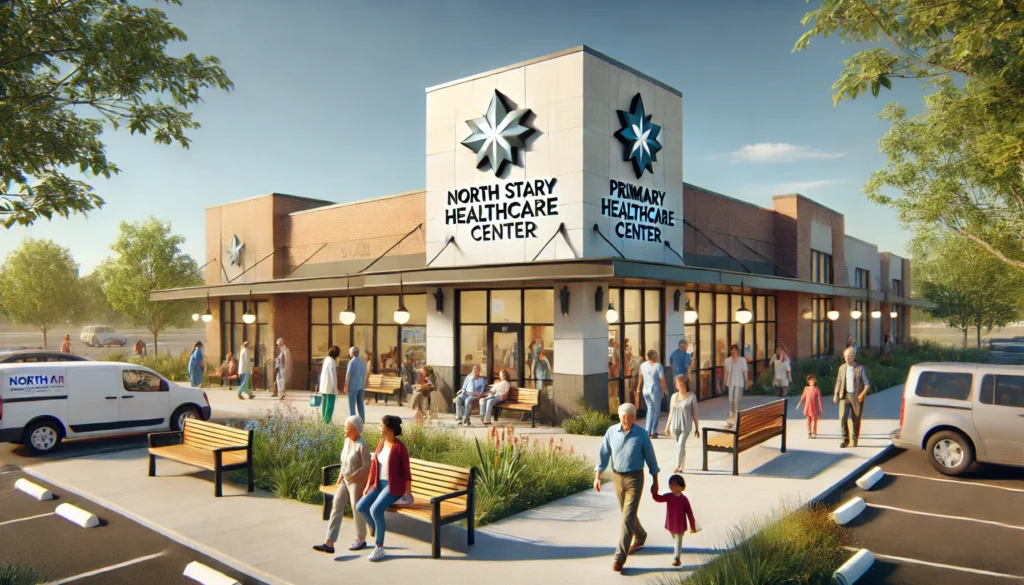When it comes to maintaining good health, access to quality medical care is paramount. In our quest to ensure everyone has access to the care they need, North Star Aid has established a network of Primary Healthcare Centers designed to deliver comprehensive medical services to communities. This blog post will delve into how these centers are making a significant difference in the lives of countless individuals by providing accessible, high-quality healthcare.
What Are Primary Healthcare Centers?
Primary Healthcare Centers (PHCs) are the cornerstone of North Star Aid’s mission to provide accessible and affordable healthcare. These centers serve as the first point of contact for individuals seeking medical attention, offering a wide range of services that cover preventive, promotive, curative, and rehabilitative health care.
The Role of Primary Healthcare Centers
The primary role of PHCs is to ensure that everyone, regardless of their socio-economic status, has access to essential health services. These centers are strategically located in various communities to maximize reach and accessibility. They play a crucial role in:
- Providing Preventive Care: PHCs focus on prevention through vaccinations, health education, and regular check-ups to detect and address potential health issues before they become severe.
- Managing Chronic Diseases: For individuals with chronic conditions like diabetes or hypertension, PHCs offer continuous care and management to keep these conditions under control.
- Maternal and Child Health Services: Ensuring the health of mothers and children is a priority at PHCs, which provide prenatal and postnatal care, nutritional support, and immunizations.
- Basic Emergency Services: PHCs are equipped to handle minor emergencies and stabilize patients before referring them to higher-level healthcare facilities if necessary.
Benefits of Primary Healthcare Centers
The benefits of PHCs are manifold. Here are some of the key advantages:
- Accessibility: PHCs are often located within communities, reducing the need for long travel and making it easier for people to seek care.
- Affordability: By offering affordable services, PHCs help to alleviate the financial burden on individuals, especially those from low-income backgrounds.
- Comprehensive Care: From preventive to curative services, PHCs provide a wide range of healthcare services under one roof, ensuring holistic care for patients.
- Continuity of Care: Regular visits to PHCs help in building a continuous care relationship between healthcare providers and patients, leading to better health outcomes.
- Community Health Promotion: PHCs play a vital role in educating the community about healthy practices and disease prevention.
Enhancing Access Through Innovation
At North Star Aid, we understand that innovative solutions are key to enhancing the accessibility and effectiveness of PHCs. Some of the innovative approaches we have implemented include:
- Telemedicine Services: To reach even the most remote areas, we have integrated telemedicine services, allowing patients to consult with healthcare providers virtually.
- Mobile Health Units: Our mobile health units travel to underserved areas, providing essential healthcare services to those who cannot visit a PHC.
- Health Camps: Regular health camps are organized to provide free check-ups, screenings, and health education to the community.
- Community Health Workers: We train local community health workers who play a crucial role in health promotion and disease prevention at the grassroots level.
Real-Life Impact Stories
To truly understand the impact of our PHCs, let’s take a look at some real-life stories from the communities we serve.
Story 1: Maria’s Journey to Health
Maria, a 45-year-old mother of three, struggled with managing her diabetes. The nearest hospital was miles away, making regular check-ups challenging. However, with the establishment of a PHC in her community, Maria now receives regular monitoring and management of her condition. The convenience and continuous care have drastically improved her health and quality of life.
Story 2: Ensuring Safe Motherhood for Amina
Amina, a young pregnant mother, benefited from the comprehensive maternal health services offered at her local PHC. From prenatal check-ups to nutritional guidance, the support she received ensured a healthy pregnancy and safe delivery. Amina’s story highlights the importance of accessible maternal healthcare.
Primary Healthcare Centers (PHCs) are revolutionizing healthcare accessibility by providing essential medical services directly within communities. These centers are pivotal in delivering preventive care, managing chronic diseases, and offering maternal and child health services. With a focus on affordability and comprehensive care, PHCs ensure that everyone has access to the healthcare they need. By incorporating innovative solutions such as telemedicine and mobile health units, North Star Aid’s PHCs are setting new standards in healthcare delivery. Understanding the role and benefits of PHCs is crucial for recognizing their impact on community health and well-being.
How to Support Primary Healthcare Centers
Supporting the growth and sustainability of PHCs is vital for ensuring continued access to quality healthcare. Here are some ways you can contribute:
- Advocate for Funding: Encourage local and national governments to allocate funds for the establishment and maintenance of PHCs.
- Volunteer: Offer your time and skills to support PHC activities and outreach programs.
- Donate: Financial contributions can help in expanding services, acquiring medical supplies, and improving facilities.
- Raise Awareness: Educate your community about the importance of PHCs and the services they provide.
Conclusion
Primary Healthcare Centers are a critical component of North Star Aid’s mission to provide accessible medical care. By addressing the healthcare needs of communities at the grassroots level, these centers ensure that everyone, regardless of their background, has access to essential health services. Through continuous innovation and community involvement, PHCs are not just transforming healthcare delivery but also enhancing the overall health and well-being of the communities they serve. Let’s work together to support and expand these vital centers, ensuring a healthier future for all.

